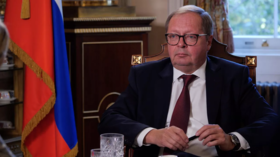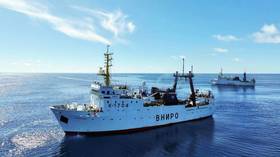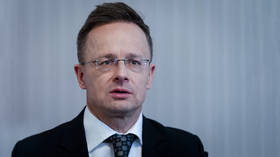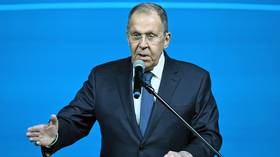Isolated & discredited: Intransigent US policy impedes Cuba’s reforms
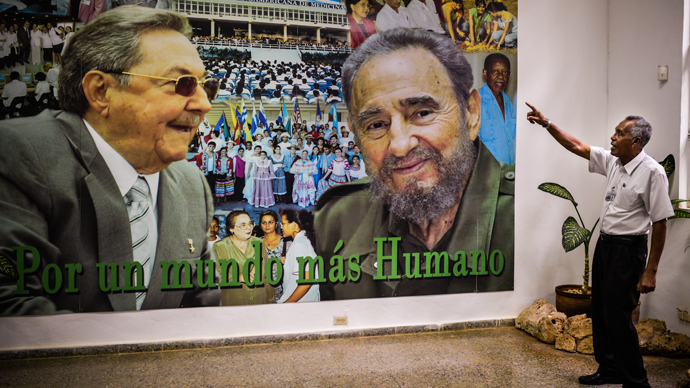
Despite the mutual economic benefits of normalizing ties with Cuba, the unceasing and immoral embargo further emboldens the Obama administration’s diplomatic incompetence.
It is no exaggeration to say that the world is opposed to the crippling economic embargo unilaterally imposed on Cuba by the United States. 188 nations approved a resolution calling for an end to the blockade at this year’s annual vote on the issue at the UN General Assembly, with only 2 countries opposing – the United States and Israel. The outcome was unsurprising, as Washington has refused to waver from its policy for over five decades, despite immense opposition from the international community that it so often claims to represent. As a result of the embargo, Cuba cannot sell its products on the US market and cannot use dollars in its transactions, hindering foreign trade, the establishment of joint ventures, and international investment. Third countries have been aggressively fined and pursued by the US to stop them from trading with Cuba, while fines against embargo violators have risen totaling $2.5 billion to date. Cuba is also prevented from accessing medical and surgical equipment, and drugs needed for the effective treatment of tumors, HIV/AIDS, tuberculosis, and cancer.
According to Havana, the cost of the embargo to the Cuban economy is estimated at $1.1 trillion dollars. China and Venezuela railed against the US for its reactionary stance following the recent vote, while Russia criticized Washington’s policy as being “reminiscent of the Cold War.” The rationale behind the US embargo has remained essentially unchanged since the 1960s, and is best described by Lester D. Mallory, former deputy assistant Secretary of State. “The majority of the Cuban people support Castro. There is no effective political opposition… The only foreseeable means of alienating internal support is through disenchantment and disaffection and hardship… every possible means should be undertaken promptly to weaken the economic life of Cuba… a line of action which… makes the greatest inroads in denying money and supplies to Cuba, to decrease monetary and real wages, to bring about hunger, desperation and overthrow of government,”wrote Mallory, during the height of the Cold War. The stance of every US president since Kennedy has effectively been, “give it time.”

Perestroika in Havana
In an apparent justification of Washington’s defiant policy on
Cuba, US envoy Ronald Godard slammed Havana as for maintaining "one of
the most restrictive economic systems in the world." It is
wholly insincere of the US to maintain this position when it
refuses to scale back the decades-long climate of economic
hostility, which remains a critical obstacle to Cuba’s own reform
process.
President Raúl Castro, who is seen to be more pragmatic and less
ideological than his brother Fidel, unveiled an ongoing series of
reforms in 2010 aimed at moving the island’s stagnant
Soviet-style economy toward a mixed economy, with market
functions similar to that of China or Vietnam. In an effort to
reduce dependency on a bloated state-bureaucracy, Havana laid off
some 500,000 state workers, while significantly relaxing
prohibitions on small business activity and the individual hiring
of labor. Former state-employees were encouraged to go into
business for themselves by driving taxis, opening barbershops,
clothing shops and restaurants. Farmers were allowed to sell
their goods for a profit, while state-owned companies were
permitted to keep 50 percent of their after-tax income to
reinvest in productivity, indicating measures to attract foreign
investment capital.
Recent reforms are bolder, aimed at establishing a tax-free special development zone just west of Havana where foreign companies will be able to transfer tariff-free profits abroad; contract lengths will be extended to 50 years, while full ownership will be allowed for firms operating in the zone. The zone will allow foreign companies to import raw materials, relying on cheap Cuban labor to assemble finished products for export. Companies operating in the zone will pay salaries directly to the Cuban government rather than to workers themselves. Labor will be sold at market rates, while workers are paid on a Cuban scale, allowing the state to appropriate the difference.

Critics see this as a closer integration with an exploitive
capitalistic business model that will widen existing income
disparities. Income inequality between those employed in the
party bureaucracy or tourism sector and those who struggle to
earn enough to buy goods in state-run shops has deepened in
recent times. If the government is perceived as being the biggest
benefactor of foreign investment without earnings being
adequately channeled to efforts to foster nascent
entrepreneurialism and social welfare programs, it will have
negative social – and political – ramifications.
No shock therapy – we promise!
Another significant development is the announcement of an ambitious currency reform that would unify Cuba’s two-currency system. Cuba uses low-valued national pesos alongside convertible pesos tied to the US dollar, introduced for use in the tourism sector and foreign trade to protect the domestic economy from cash influxes, although many would argue these measures had the opposite effect – enriching those who had access to foreign capital while emboldening the shadow economy. State-run shops sell goods in convertible pesos, while most salaries are paid in national pesos – valued at 24 to a convertible peso – which offers much weaker purchasing power. Havana is attempting to converge the exchange rate gradually between the two peso currencies, and the government – acknowledging the potential for volatility in light of the task’s complexity – and promised to avoid imposing "shock therapy" on Cubans.
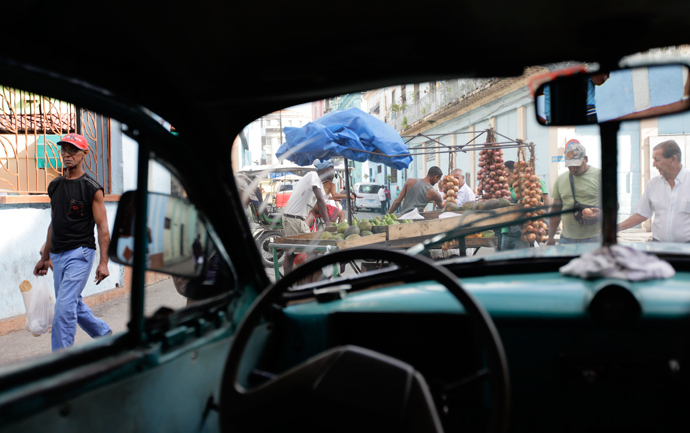
President Raúl has confirmed plans retire at the end of his
current term in 2018, and these policies can be interpreted as
his efforts to establish a bridge between Fidel’s central
planning and the hybrid socialist-market economy that a new
generation of Cuba’s Communist Party will inherit. The success of
that transition depends on how effectively these experimental new
policies are implemented. Raúl’s socialist-austerity policies
will come to find more enemies than proponents if a privatized
growth model undermines socialized health and education services
– the jewels of Fidel’s revolution – and produces oligarchs who
have more loyalty to foreign investors than to the values of
egalitarianism promoted by the state for so long.
Despite severe sanctions and scant resources, Cuba has achieved
99.8% literacy levels through free universal education, and is
one of the world’s leading exporters of teachers and doctors.
Cuba’s universal health-care is among the best in the developing
world; services are freely provided to citizens, and public
health indicators surpass that of the United States in many
areas.
The resilience of the Cuban people is astounding, and if reform policies are sensibly implemented, there will be much room for optimism. A rapprochement between Washington and Havana is not unthinkable, and would foster significant economic benefits, the beginnings of which can be seen through informal trade between Cuban-Americans in south Florida and their families in Havana.
Despite campaigning on reassessing ties with Cuba, the Obama
administration has proved its diplomatic ineptitude by continuing
policies that history will scorn – the world’s sole military
superpower shaking its closed fist at this resilient little
island.
The statements, views and opinions expressed in this column are solely those of the author and do not necessarily represent those of RT.
The statements, views and opinions expressed in this column are solely those of the author and do not necessarily represent those of RT.




